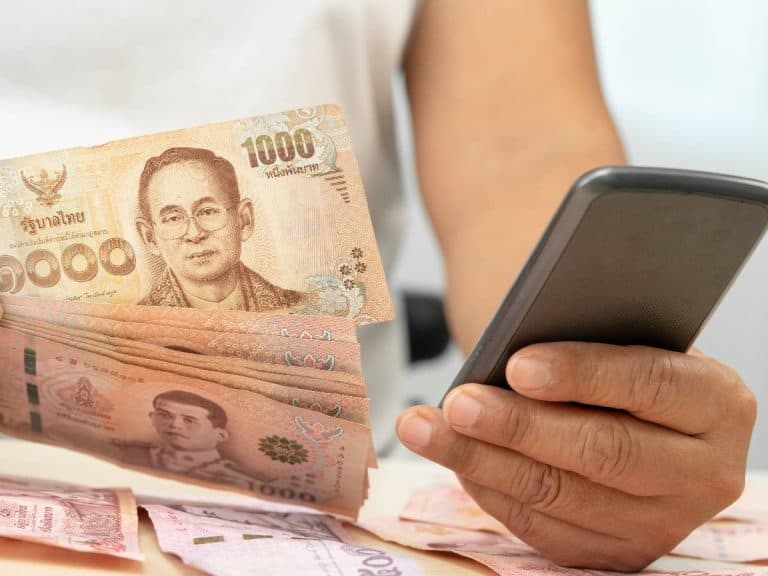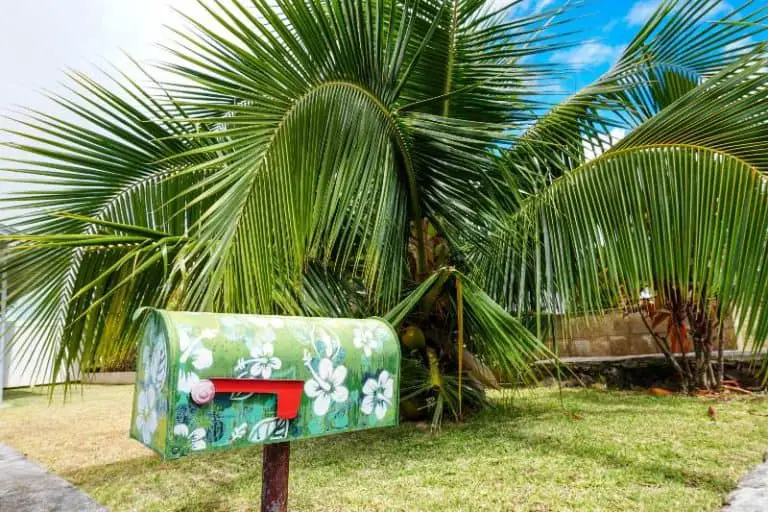The Complete Guide to Getting Married in Thailand
A warm breeze caresses your skin, as you stand beneath swaying palm trees, hand in hand with the love of your life. The turquoise waves of the Andaman Sea lap gently against golden sands, while whiffs of spicy cuisine and fragrant jasmines waft through the air. Amidst lush tropical landscapes and unparalleled hospitality, you prepare to tie the knot in one of the world’s most romantic destinations. Welcome to Thailand, the idyllic setting for couples looking to celebrate their love in a magical and unforgettable way.
As we embark on this journey together, let’s explore everything you need to know about getting married in Thailand — from idyllic locations and unique customs to the nitty-gritty of documentation. Join us in uncovering how to create a wedding experience in the Land of Smiles that you and your loved ones will cherish for a lifetime.
If you’re a foreigner planning to get married in Thailand, you must go to your Embassy there and make a declaration that you’re single and eligible to marry as per Thai laws. You’ll need to bring your passport and arrival card with you. A Thai Diplomatic or Consular Officer will register your marriage after completing the necessary formalities.
Key Takeaways
- Thailand has specific legal requirements for foreign couples, including document translations and affirmations.
- Embracing Thai wedding customs can make the experience more memorable and authentic.
- Ensure you understand post-wedding steps, especially if you intend to use your Thai marriage certificate internationally.

Understanding Thai Marriage Laws
Navigating the intricate tapestry of Thai law can seem daunting, but with a bit of guidance, you’ll find it’s more straightforward than it appears. Let’s dive deep into the core aspects that you need to be aware of:
Age Requirements
In the vibrant land of Thailand, the legal age to marry is 20 years old. However, there’s a twist! If you’re between the ages of 17 and 20, you can still tie the knot, but you’ll need consent from your parents. Imagine being 19, deeply in love, and standing with your partner in front of a Thai official, only to realize you forgot that all-important parental letter. So, if you’re in that age bracket, remember to have that chat with mom and dad!
Marital Status Requirements
Thailand, like many other countries, requires that both parties entering into a marriage be single. This means that if you have a previous marriage, you must provide proof that your prior marriage has been legally terminated, either through death or divorce. Picture this: you’re on a beautiful Thai beach, ready to say “I do,” but you’ve forgotten your divorce papers back home. That’s a hiccup you’d want to avoid! Always ensure you have all the necessary documentation to prove your marital status.
Nationality Considerations
Thailand is welcoming to lovebirds from all over the globe. Whether you’re both from different countries or one of you is Thai, the country embraces your union. However, there are some nuances to be aware of. For instance, each foreigner wishing to marry in Thailand must obtain an official declaration of their marital status from their home country’s embassy. Think of it as your passport to marital bliss in Thailand. It’s a way to ensure that while you’re embracing Thai traditions, you’re also respecting the legalities of your own homeland.
In essence, while the allure of a Thai wedding is undeniable, it’s essential to be well-prepared. Whether you’re dreaming of a traditional ceremony in a historic temple or a modern celebration on a sun-kissed beach, understanding these laws ensures your special day goes off without a hitch. Happy planning!
Pre-Wedding Steps
The mesmerizing beaches, the rich cultural tapestry, and the promise of a unique celebration. But before you get lost in the dreamy landscapes and the scent of jasmine flowers, there are some crucial steps you need to take to ensure your wedding in Thailand goes off without a hitch. Let’s embark on this pre-wedding journey together:
Obtaining the Affirmation of Freedom to Marry
This might sound like a grand declaration from a romance novel, but it’s a practical and essential document. The Affirmation of Freedom to Marry is your golden ticket, a statement that confirms you’re legally free to marry. If you’re a foreigner, you’ll need to visit your embassy in Thailand to obtain this affirmation. Picture it as a bridge between your homeland’s regulations and Thai laws, ensuring everything is above board. Remember, each country’s embassy might have its own set of requirements, so it’s wise to check in advance.
Translation of Documents to Thai
Now, you’ve got your essential documents, but there’s a catch – they’re probably not in Thai! Thailand, with its rich linguistic heritage, requires that all your official documents be translated into the local language. It’s not just about the legalities; it’s also a nod to the country’s culture and traditions. So, find a reputable translation service. Imagine the peace of mind you’ll have, knowing that every word on your document mirrors its original intent, just in a different language.
Legalization of Documents at the Thai Ministry of Foreign Affairs
With your documents beautifully translated, there’s one more step before they’re ready for the big day: legalization. This process ensures that your documents, from your Affirmation of Freedom to Marry to any other essential paperwork, are recognized and accepted by Thai authorities. Think of it as getting a seal of approval. Head to the Thai Ministry of Foreign Affairs, where they’ll verify the authenticity of your translated documents. It’s like getting a stamp in your passport, but for your wedding!
In the grand tapestry of wedding planning, these steps might seem like mere threads. But they’re the foundation, ensuring that when you stand hand in hand with your partner, overlooking a Thai sunset, everything is perfect. So, embrace the process, relish the preparations, and get ready for the adventure of a lifetime!
The Thai Marriage Ceremony
Thailand, with its rich tapestry of traditions and customs, offers a unique and memorable wedding experience. The Thai marriage ceremony is a blend of Buddhist religious practices and local customs, making it distinct from Western wedding traditions. Let’s delve into the heart of the Thai marriage ceremony:
Traditional Customs and Rituals:
- Khan Maak Procession: This vibrant procession sees the groom, accompanied by his family and friends, making his way to the bride’s house. They bring with them the “Khan Maak” tray, filled with gifts and a symbolic amount of money, showcasing the groom’s ability to provide for the bride.
- Gate Crashing: Before the groom can see his bride, he might have to “buy” his way past gates or barriers set up by the bride’s family and friends. It’s a playful tradition, often filled with fun challenges, riddles, or even a bit of light-hearted negotiation.
- Rod Nam Sang: In this ritual, the couple sits beside each other, and elder family members pour water over their hands while offering blessings. It’s a symbolic act, signifying the couple’s union and the community’s acceptance.
- Monk Blessing: Many Thai weddings incorporate a Buddhist ceremony where monks chant prayers and bless the couple. The couple offers food and donations to the monks, seeking their blessings for a prosperous and happy married life.
- Phiti Bai Sri Su Kwan: This is a soul-calling ceremony, believed to unite the couple’s spirits. The couple is connected with a symbolic thread, and prayers are recited to ensure harmony, love, and prosperity in their union.
- Sin Sod (Dowry): Traditionally, the groom offers a dowry to the bride’s family. This can be in the form of money, jewelry, or other valuables. It’s a way of showing appreciation to the bride’s parents for raising her and a demonstration of the groom’s ability to support his wife.
Differences between Western and Thai Ceremonies:
- Religious Undertones: While many Western weddings might take place in a church, synagogue, or other religious venues, Thai weddings are deeply rooted in Buddhist practices, even if they’re not held in a temple.
- Attire: Thai wedding attire is distinct, with couples often donning traditional silk garments in vibrant colors. The bride might wear a beautiful “Chut Thai,” while the groom sports a silk shirt and pants.
- Community Involvement: Thai weddings are community affairs. Even the rituals, like the water-pouring ceremony, involve participation from elder family members and sometimes even extended relatives and neighbors.
- Duration: Thai wedding ceremonies can be lengthy, sometimes spanning several days, with various rituals and ceremonies. In contrast, many Western weddings are shorter, often focusing on the exchange of vows followed by a reception.
- Focus on Symbolism: Every aspect of a Thai wedding, from the Khan Maak procession to the thread used in the Bai Sri ceremony, carries deep symbolic meaning, emphasizing unity, prosperity, and the joining of two families.
In essence, a Thai marriage ceremony is a beautiful blend of traditions, beliefs, and customs, offering a unique experience that’s both spiritual and communal. Whether you’re attending one or planning to have one, understanding these rituals enriches the experience, making it even more memorable.
Registering the Marriage
The ceremonies are over, and you’ve exchanged vows amidst the enchanting backdrop of Thailand. But before you dive into the post-wedding festivities, there’s a crucial step to ensure your union is legally recognized: registering the marriage. Let’s walk through this process together, ensuring every “i” is dotted and every “t” is crossed:
Where and How to Register:
In Thailand, the place to make your marriage official is at the local district office, known as the “Amphur” or “Khet.” It’s not as glamorous as the beach or temple where you might have had your ceremony, but it’s where the magic of bureaucracy happens! You and your partner will need to visit in person. It’s a good idea to call ahead and check if you need an appointment. While there, you’ll fill out forms and provide the necessary documents to the officials. Think of it as the final, official seal on your union.
Necessary Documents
Documentation is the backbone of this process. Here’s what you’ll typically need:
- Your passport and copies of your passport’s main page and entry stamp.
- The Affirmation of Freedom to Marry, translated into Thai and authenticated by the Thai Ministry of Foreign Affairs.
- If previously married, divorce certificate or the death certificate of a deceased spouse.
- Your Thai partner (if marrying a Thai national) will need their national ID card and House Registration Document (“Tabien Baan”).
- Any other documents specified by your embassy or the Amphur.
- Imagine these papers as the keys to the kingdom, unlocking the door to your official marital status.
Registration Process:
- Marriage registration can be done at any District Office or Minor District Office in Thailand.
- If the marriage registration is filed at the District Office located in the female’s birthplace (as per the House Registration Certificate or house registration certificates), her name and surname will be changed by the District Officer. She must then file for a new Identification Card within 60 days.
- If the marriage is registered elsewhere, the female must contact the local District Office to change her name and surname and file for a new Identification Card.
- Thailand marriage registration fee is 400 Baht.
Receiving the Marriage Certificate
Once the Amphur officials have verified your documents and everything is in order, you’ll be presented with your Thai Marriage Certificate. This isn’t just a piece of paper; it’s a testament to your love and commitment, recognized by the Kingdom of Thailand. You’ll typically receive two copies, and it’s a good idea to make a few extra photocopies for safekeeping. Hold onto them, cherish them, and maybe even frame one as a keepsake!
Registering your marriage might not have the allure of the wedding ceremony itself, but it’s a profound step, grounding your union in legality and formality. With these steps completed, you can confidently step into your new life, knowing that your marriage is recognized both in the Land of Smiles and beyond. Cheers to a lifetime of happiness!
Post-Wedding Steps
The confetti has settled, the music has faded, and you’ve embarked on the first days of marital bliss in the picturesque landscapes of Thailand. But, as with all great adventures, there are a few final steps to ensure your Thai wedding journey is wrapped up perfectly. Let’s navigate these post-wedding waters together:
Translating the Thai Marriage Certificate to Your Native Language
While your Thai Marriage Certificate is a beautiful memento of your special day, it’s essential to have it translated into your native language, especially if you plan to use it outside of Thailand. Seek out a reputable translation service in Thailand that specializes in official documents. Picture this: a document that mirrors the authenticity of your Thai certificate, but in the language of your homeland. This translation will be invaluable for any future legal or administrative tasks in your home country.
Reporting the Marriage to Your Home Country (if necessary)
Every country has its own tapestry of regulations and requirements. Some nations require you to report marriages that occur abroad to ensure they’re recognized locally. It’s like giving your home country a heads-up about your new marital status. To do this:
Visit your country’s embassy or consulate in Thailand. They’ll guide you on the specific process and any documents you might need.
Along with your translated marriage certificate, you might need additional documents like your passport or any forms specified by your embassy.
Once reported, some countries might provide an additional certificate or acknowledgment, while others might simply update their records. Think of this step as syncing your marital status across borders, ensuring that your union in Thailand is acknowledged and celebrated wherever you go.
The post-wedding steps might seem like small administrative tasks amidst the grandeur of your Thai wedding memories. However, they’re the final stitches in the tapestry of your wedding journey, ensuring that your union is recognized, celebrated, and honored, no matter where your adventures take you next. Here’s to every step, every memory, and every moment of your shared journey ahead
Cultural Tips and Etiquette
Thailand, often referred to as the “Land of Smiles,” is not just rich in natural beauty but also steeped in cultural traditions and etiquettes that have been passed down through generations. If you’re planning to get married in Thailand or attending a Thai wedding, understanding these cultural nuances can make your experience even more enriching. Let’s delve into some of these aspects:
Dress Code
Thai weddings are often a blend of vibrant colors, intricate designs, and deep-rooted symbolism. When dressing for a traditional Thai wedding:
- For Men: A silk shirt and traditional Thai pants or a western-style suit are both acceptable. Colors like white, gold, and light pastels are often preferred.
- For Women: A traditional Thai silk dress, known as a “Chut Thai,” is ideal. These dresses are often adorned with beautiful patterns and can be complemented with gold jewelry. If you’re wearing a western dress, opt for something modest, covering the shoulders and knees. Picture yourself in these traditional attires, blending seamlessly with the local customs, and becoming a part of the vibrant tapestry of the celebration.
Gift-Giving Customs
If you’re attending a Thai wedding, it’s customary to offer a gift. Here are some pointers:
- Monetary Gifts: It’s common to give money in a decorative envelope. The amount should be an even number, as it’s considered good luck. For instance, 1,000 or 2,000 baht would be appropriate.
- Household Items: Practical gifts for the couple’s new home are also appreciated. Think of items like elegant tableware or decorative pieces.
- Avoiding Taboos: Certain items, like knives or scissors, are considered bad luck and should be avoided as gifts. Imagine the joy on the couple’s faces as they receive your thoughtful gift, a token of your appreciation and good wishes for their shared journey ahead.
Respecting Thai Traditions
Thai weddings are a beautiful amalgamation of rituals, prayers, and ceremonies. Here are some ways to show respect:
- Wai Gesture: The “Wai” is a traditional Thai greeting where you place your palms together near your chest and bow slightly. It’s a sign of respect, especially towards elders.
- Monk Blessings: Many Thai weddings involve a Buddhist ceremony where monks chant prayers and bless the couple. During this time, sit quietly, and if you’re unsure of what to do, simply follow the lead of the locals.
- Shoes: If the wedding or a part of it is held at a temple or even someone’s home, it’s customary to remove your shoes before entering. By embracing these traditions, not only do you show respect to the couple and their families, but you also immerse yourself in the rich cultural tapestry of Thailand, making your experience truly unforgettable.
In essence, understanding and respecting Thai wedding customs and etiquettes is like opening a door to the heart of Thai culture. It allows you to connect more deeply with the people, the traditions, and the very essence of what makes a Thai wedding so unique and special.
Potential Challenges and Solutions
Marrying in the picturesque landscapes of Thailand can be a dream come true. However, like any cross-cultural endeavor, it comes with its set of challenges, especially for foreign couples. But fear not! With a bit of foresight and preparation, these challenges can be easily navigated. Let’s explore some potential hurdles and their solutions:
Common Issues Faced by Foreign Couples:
- Language Barrier: While many Thai citizen in urban areas and tourist destinations speak English, the language can be a barrier, especially in more remote or traditional settings.
- Document Verification: Ensuring that all your documents are correctly verified, translated, and authenticated can be a daunting task.
- Cultural Misunderstandings: Differences in wedding customs, rituals, and expectations can lead to misunderstandings or unintentional faux pas.
- Legal Nuances: Navigating the legal intricacies of another country can be complex and sometimes confusing.
Tips to Ensure a Smooth Process:
- Hire a Local Wedding Planner: A local expert can be invaluable. They’ll be familiar with the local customs, language, and legal requirements, ensuring everything goes off without a hitch.
- Start Early: Begin the process of gathering and verifying your documents well in advance. This gives you ample time to address any issues that might arise.
- Cultural Research: Take some time to familiarize yourself with Thai wedding customs and etiquettes. This will not only help you avoid any cultural missteps but also enrich your overall experience.
- Local Legal Counsel: Consider consulting with a Thai lawyer or legal service that specializes in marriage registration for foreigners. They can guide you through the legal maze and ensure all your bases are covered.
- Stay Patient and Flexible: Understand that things might not always go as planned. Processes might take longer, or unexpected requirements might pop up. Stay patient, keep a positive attitude, and be ready to adapt.
- Engage in Language Lessons: If you’re planning to spend a significant amount of time in Thailand, consider taking basic Thai language lessons. Even a few phrases can go a long way in bridging communication gaps.
- Open Communication: If marrying a Thai national, ensure open communication with your partner. They can provide insights, clarify doubts, and act as a bridge between both cultures.
While marrying in Thailand as a foreigner might come with its set of challenges, they’re not insurmountable. With the right preparation, a dash of patience, and a sprinkle of cultural understanding, you can ensure that your Thai wedding journey is as smooth as the serene waters of Phi Phi Islands!
Also, check this article out where I wrote about Uncovering the Expat Communities in Thailand! It is a great source of information about the different areas in Thailand and what to expect when you move there. Hopefully, it will help make your transition smoother!
Same-sex marriages in Thailand
The article from Thai PBS World provides a comprehensive overview of the move towards legalizing same-sex marriage in Thailand. Here’s a summary:
The Move Forward Party is gearing up to fulfil its promise to legalize same-sex marriage in Thailand. Thitaporn Khamchai, a Thai woman who has been in a same-sex relationship for four years, expresses her anticipation for the legal changes, hoping to secure legal rights for her partner in terms of health and asset decisions.
- Move Forward’s Plan: The party’s leader, Pita Limjaroenrat, has committed to passing the Marriage Equality Bill within the first 100 days of their tenure. All eight coalition partners have shown support for the bill. Pita emphasizes that gender diversity is a strength, not a flaw, for the nation.
- Current Challenges for LGBTQ+ Couples: Without legal recognition, LGBTQ+ couples face numerous challenges. They lack the right to make medical decisions for their partners, don’t have a claim to assets after a partner’s death, and often don’t receive state benefits provided to family members of civil servants.
- Marriage Equality Bill Details: The bill aims to grant LGBTQ+ couples rights similar to heterosexual couples, such as mutual rights to assets, insurance, and representation in criminal proceedings. However, the right for LGBTQ+ couples to adopt children is still under debate and isn’t included in the current draft.
- Thailand’s Stance on LGBTQ+: While Thailand has been relatively accepting of the LGBTQ+ community, evident through events like transgender beauty pageants, there’s still a long way to go. Some feel that media attention on same-sex weddings can be discriminatory, as heterosexual weddings don’t receive the same coverage.
- Global Context: The Netherlands was the first country to legalize same-sex marriages in 2000. Since then, 31 countries, including France and Taiwan, have endorsed marriage equality. However, many countries still oppose it, often due to religious beliefs.
- Religious Considerations: The proposed Thai marriage equality law emphasizes equal rights regardless of gender but won’t infringe on people’s right to practice their faith. It won’t force anyone to register their marriage under this law, and religious leaders won’t be obligated to perform wedding ceremonies for LGBTQ+ couples if it goes against their beliefs.
This move by Thailand towards marriage equality signifies a significant step in recognizing and granting rights to the LGBTQ+ community.
Same Gender Adoption Law in Thailand
In Thailand, the adoption process is overseen by the Child Adoption Center of the Department of Public Welfare, which is the primary governmental agency responsible for the adoption of Thai children. Additionally, certain Non-Governmental Organizations (NGOs) are licensed to collaborate with the Child Adoption Center, especially in cases where a child is to be placed abroad.
Many international prospective adoptive parents are drawn to Thailand, given its history of foreign child adoption. However, adopting a child from Thailand is a complex procedure that can span up to two years, reflecting the thoroughness of the process.
For a foreign couple to adopt a child from Thailand, they must meet the following criteria:
- The couple should be legally married.
- They must be at least fifteen years older than the child they intend to adopt.
- Both partners should be at least twenty-five years old.
- They must fulfill the adoption eligibility requirements of their home country or state.
Furthermore, they need to provide essential documents such as proof of citizenship, marriage, and legal status. These documents, along with other necessary forms, must be submitted to the Thai Embassy and, if applicable, to the United States Department of State.
The topic of same-sex couples adopting Thai children is contentious. Despite the growing LGBT community in Thailand, same-sex marriage remains illegal. However, the LGBT community has recognized “third sex couples,” which refers to same-sex couples living as if they were married. There have been calls from rights activists to legalize same-sex marriage in Thailand, but no legislation has been enacted to alter the existing prohibition on same-sex marriages.
In essence, the Thai legal framework does not grant the same adoptive parents’ rights to gay couples as many Western countries do. Even though Thailand is perceived as a tolerant culture for the LGBTQ+ community, same-sex couples cannot legally register as married. The adoption process in Thailand is currently overseen by social workers who adhere to specific criteria, none of which accommodate same-sex couples.

Getting Married in Thailand FAQs
Can foreigners get married in Thailand?
Yes, foreigners can tie the knot in Thailand. They must present their passport, arrival card, and a duly certified document, translated into Thai, confirming their eligibility to marry. Every foreigner wishing to marry in Thailand must secure an official declaration of their marital status from their home country’s embassy.
Can I get married in Thailand on a tourist visa?
While there’s a specific Thai marriage visa for those intending to settle with their spouse in Thailand, it’s not mandatory for the wedding itself. If you’re only looking to exchange vows with your Thai partner, a tourist visa suffices. However, remember you can only apply for a marriage visa once your marriage is officially registered, either in Thailand or elsewhere.
What is needed to get married in Thailand for foreigners?
To legally formalize your marriage in Thailand, follow these steps:
- Secure the Affidavit of Freedom to Marry from your embassy.
- Translate this affidavit into Thai.
- Get the translated document authenticated at the Ministry of Foreign Affairs.
- Proceed to the district office to register your marriage.
Is it easy to get married in Thailand?
While Thailand doesn’t impose residency prerequisites for marriage, you should allocate at least two business days to process the necessary paperwork before your marriage registration.
How much does it cost to get married in Thailand?
A recent statement from the Tourism Authority of Thailand suggests that the typical cost of a wedding in Thailand ranges between 5-20 million Baht. This translates to approximately $165,000-650,000 USD, positioning Thai weddings at a premium price point for many.
Conclusion
Getting married in Thailand is undeniably a dream for many couples, thanks to the nation’s captivating allure, rich traditions, and vibrant aura. The breathtaking landscapes, unwavering hospitality, and fascinating customs make Thailand a truly unique place to begin the journey of a lifetime.
However, it’s essential to be fully prepared and well-versed with the legalities and marriage process in Thailand. Acquiring a clear understanding of required documentation and procedural steps helps in ensuring that your special day unfolds smoothly. By staying informed and planning ahead, you can focus on what truly matters — celebrating your love amidst the serene treasure trove of experiences that Thailand has to offer.
Embracing the distinct elements characteristic of Thai culture can add extraordinary depth to your wedding. It introduces a unique blend of spirituality, respect for bonds, and motley hues of traditions — making your wedding more than just a ceremony.
As the golden sunsets over azure seas and the day of your dreams merge into a starlit night, you and your partner will be left with cherished memories etched into your hearts. So, step onto the journey of matrimony in this bewitching land. Revel in every moment, embrace the unique Thai wedding experience and begin your married life enveloped in love and smiles in the spirited Land of Smiles.
Stay connected with us to keep updated with the latest insights and tips for living and celebrating life in Thailand. Subscribe to our newsletter to get enriching content delivered right to your inbox. Have questions or need more guidance? Don’t hesitate to reach out to us. We’re here to make your Thailand journey seamless and unforgettable.






